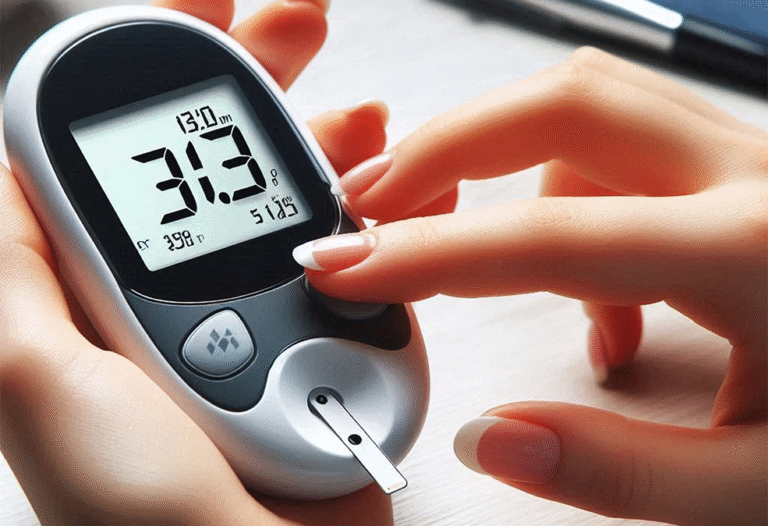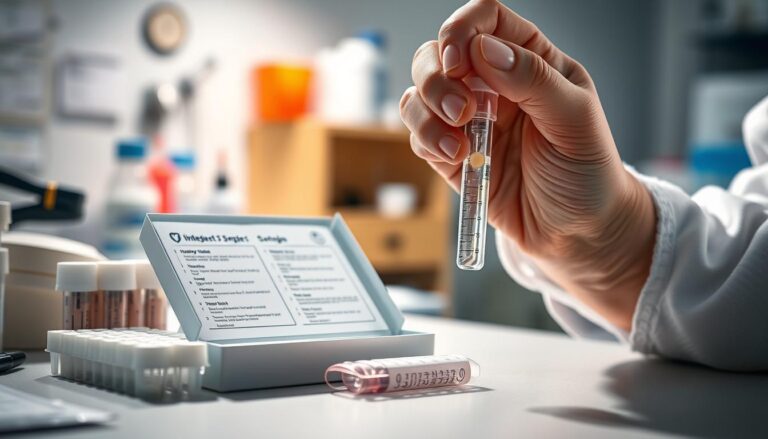Fasting Before Blood Tests: Which Tests Require It?
When we’re getting ready for blood tests, a big question is: do we need to fast? The answer depends on the test. Knowing which tests require fasting is key for getting accurate results. We’ll look into why fasting is important and how to get ready for your test.

Fasting is needed for some tests, like checking blood sugar and cholesterol levels. It’s important for getting a correct diagnosis. We’ll explore fasting requirements, lab work, and blood sample tests. This will help us understand our health better.
Understanding Blood Test Fasting Requirements
Preparing for a blood test can be tough, especially when understanding blood test acronyms, but fasting is key for accurate results. It’s important to follow fasting guidelines to get the best from your test. We’ll explore fasting instructions and preparation to make it easier for you.
Fasting for blood tests means not eating or drinking for a certain time. This lets your body use up nutrients and gives a clear view of your blood. By following fasting instructions, you avoid wrong test results. Most tests need you to fast for 8 to 12 hours.
What Does Fasting Mean for Blood Tests?
Fasting for blood tests means not eating or drinking before the test. It lets your body use up nutrients for a clear blood chemistry view. It’s key to follow fasting guidelines for accurate results.
Why Fasting Is Important for Accurate Results
Fasting is vital for blood test accuracy. It prevents wrong test results. By fasting, you ensure your test results are reliable. This is critical for tests like metabolic panels and vitamin B12 tests.
How Long Should You Fast?
The fasting time for blood tests varies by test type. Most tests need 8 to 12 hours of fasting. It’s important to follow fasting guidelines for accurate results. Some tests, like the glucose test, need 8 to 10 hours, while others, like the lipid profile test, need 9 to 12 hours.
Understanding fasting requirements for blood tests is key for accurate results. By following fasting guidelines, you take a big step towards good health. Always check with your doctor for specific fasting instructions, as they can vary.
Which Blood Tests Need Fasting: Complete Test List
Knowing which blood tests need fasting is key for getting accurate results. The fasting time varies with each test type. For tests like blood glucose, lipid profiles, and liver function, fasting is critical to avoid wrong results.
Some common tests that need fasting include:
- Blood Glucose or Sugar Test, which requires a fasting period of at least 8 to 10 hours
- Lipid Profile test, which recommends a fasting period of 9 to 12 hours
- Vitamin B12 Blood Test, which requires fasting for at least 10 hours before the test
- Iron Blood Test, which requires a minimum of 8 hours of fasting prior to the test
Following fasting guidelines for blood work is vital for accurate results. Fasting before lab tests prevents wrong results, which can lead to incorrect diagnoses or treatments. It’s best to drink plain water before fasting blood tests and avoid flavored drinks, juices, and caffeinated beverages.
After the test, you can eat and drink right away. If you accidentally eat or drink before your test, tell your healthcare provider. They will decide if you should take the test or reschedule. By following fasting guidelines, you can get accurate results and the right treatment.
Conclusion: Ensuring Accurate Blood Test Results Through Proper Fasting
Following the right fasting rules is key for getting accurate blood test results. Knowing when and how to fast helps us prepare better for our tests. This way, we get clear insights into our health.
Sticking to an 8-12 hour fast, avoiding alcohol, smoking, and hard exercise, and drinking water helps a lot. These steps reduce the chance of test results being off. This is important for checking blood sugar, fats, and liver health.
By following fasting rules for blood tests, we take charge of our health. This ensures our test results are true to our body’s state. With this knowledge, we can work with our doctors to make better health choices.







